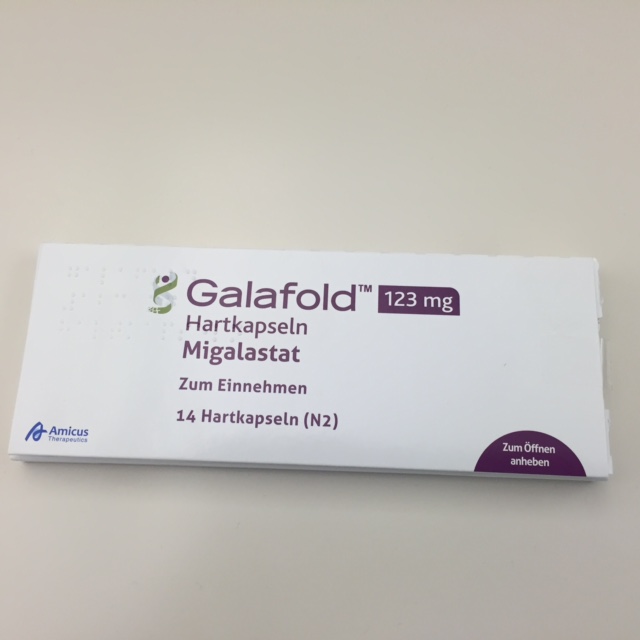Amicus' oral Fabry disease drug approved in US

Amicus Therapeutics’ first oral drug for the rare condition Fabry disease has been approved by the FDA, giving patients an alternative to conventional injected enzyme replacement therapy.
Galafold (migalastat) is an oral precision medicine for adults with a confirmed diagnosis of Fabry disease and an amenable galactosidase alpha gene variant, based on in vitro assay data.
The oral drug is an alternative to the infused enzyme replacement therapy that is current standard of care - Sanofi/Genzyme’s Fabarazyme (agalsidase beta).
Already approved in Europe, Japan, Australia and Canada, Galafold is the first new Fabry disease to hit the US market in more than 15 years.
A filing in the US was delayed after the FDA said it required a third phase 3 trial to test the drug's gastrointestinal safety - but dropped this demand last year, allowing Amicus to file the drug.
Around 3,000 people are living with Fabry disease in the US, and around half of these are thought to be untreated.
However it only works in around 35-50% of the disease population, who have the genetic variation specified in its indication.
There was no word from Amicus about the price of Galafold, although in the UK the drug costs around £210,000 ($268,000) a year.
But New Jersey-based Amicus said the drug will be available immediately and will begin shipping to a limited distribution network this week.
Last year the UK's cost-effectiveness body NICE said Galafold was a cost-effective use of NHS resources after the manufacturer agreed to a confidential discount.
The FDA approval was based on data from a phase 3 pivotal Fabry disease study in treatment-naïve patients (Study 011, or FACETS), which demonstrated the efficacy of Galafold, including a reduction in the amount of damaging disease substrate accumulated in the kidney capillaries.
The most common side effects related to Galafold were headache, nasopharyngitis, urinary tract infection, nausea and pyrexia.
Fabry disease is a rare, progressive genetic disorder characterized by a defective gene (GLA) that causes an enzyme deficiency.
This enzyme is responsible for breaking down disease substrate that, when deficient in patients with Fabry disease, builds up in the kidneys, which is one of the organ systems impacted by Fabry disease.













